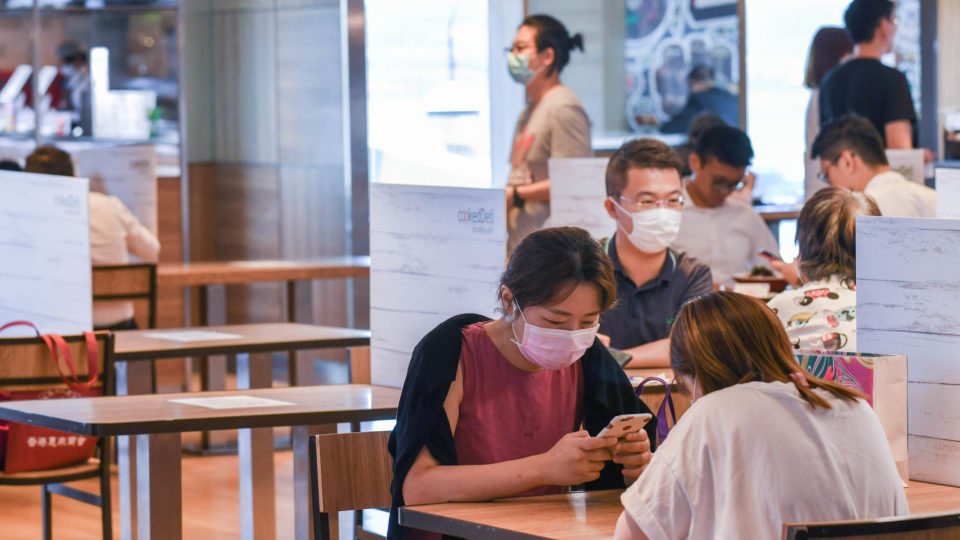Hong Kong recorded 145 more COVID-19 infections Monday, marking the sixth consecutive day of a record number of new cases.
Among them, 142 are local infections, a jump of almost 40 cases compared to yesterday when 103 of patients had no travel history.
The outbreaks at elderly homes continue to be the subject of concern, with the total number of cases at a facility in Tuen Mun climbing to 24—including 21 residents and three workers—after 13 more infections were confirmed.
A caretaker at a home for the severely disabled in Tuen Mun, and a nurse at an elderly center in Fanling, have also tested positive for the virus.
Over in hospitals, cases of infected healthcare workers contracting the virus are also sparking fear that the disease could be spreading in high-risk environments.
Two nurses, one from Prince of Wales Hospital and another from Sha Tin Hospital, have been diagnosed with the virus. Neither were working in isolation wards, and authorities believe they were infected by family members who had earlier tested positive.
For the first time since the outbreak began, a cross-boundary driver who was exempted from quarantine has tested positive for the virus—fueling criticism that the government’s policies that allow visitors such as pilots and seacrew members to enter without completing a 14-day quarantine are to blame for the third virus wave.
Nearly 60 of the new cases today—or around 40%—are patients with no known transmission links.
Earlier in the day, authorities announced further tightening of public health restrictions aimed at curbing the outbreak. Starting Wednesday, dining in at restaurants will be banned completely—an expansion of a policy enforced two weeks ago that reduced restaurants to offering only takeaway services after 6pm.
Gatherings will be capped at two people, and mask-wearing will also be made compulsory everywhere, including in outdoor areas.
Speaking to reporters during a press conference, Chief Secretary Matthew Cheung said he “sincerely appeals to everybody to stay at home and reduce social activities.”
He added: “This current virus wave is the most serious and challenging [we’ve seen] in the past six months. The next two, three weeks will be extremely crucial. We will do our utmost to prevent the virus from spreading further.”
Two more deaths were recorded on Monday including a 76-year-old female and a 92-year-old male, both of whom had underlying diseases. To date, 20 patients have died of virus-related complications.
David Hui, an infectious disease expert from the Chinese University of Hong Kong, said the fact that the city is not seeing an exponential increase in cases is a sign that the tightening of policies is slowing down the spread of the disease.
But he expects that the city’s third COVID-19 wave will continue for some time as the virus has already entered into communities, and that some public health restrictions should stay in place even when the numbers go down.




